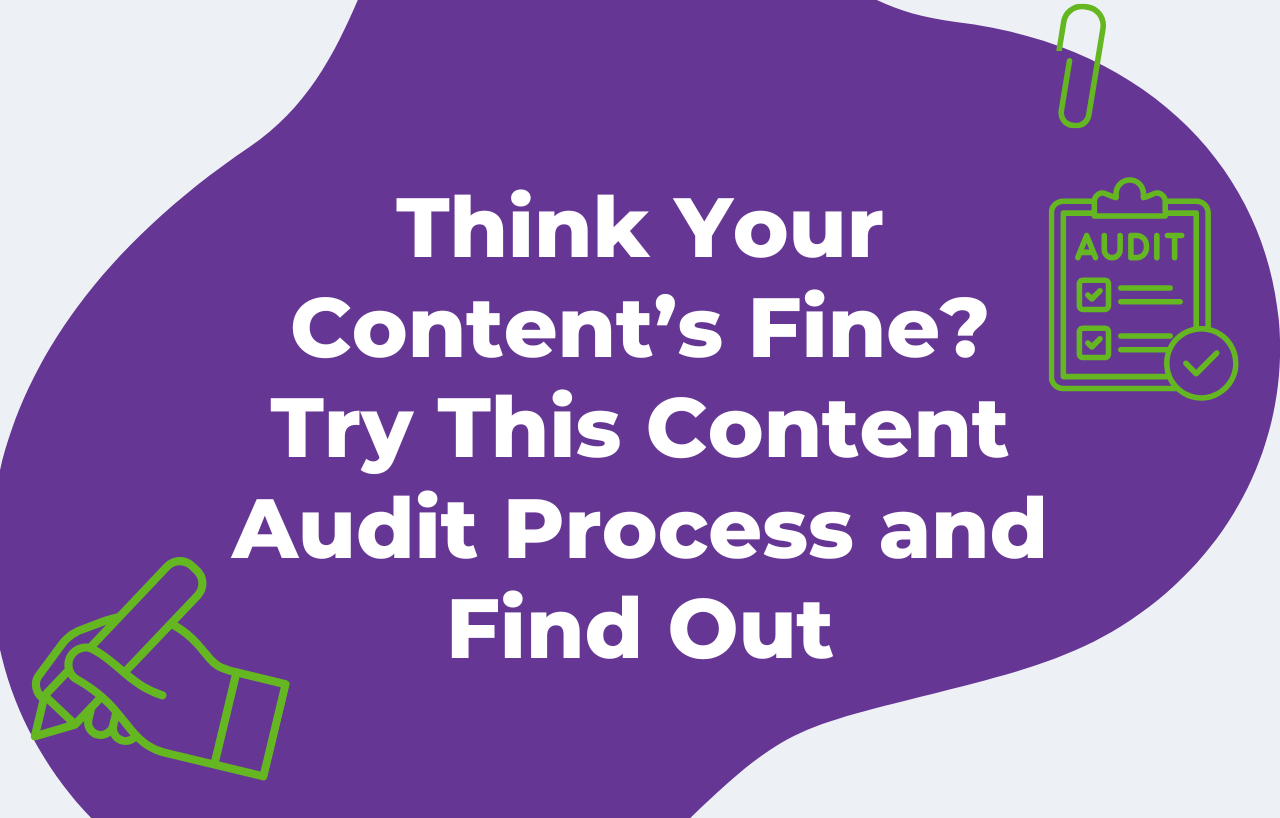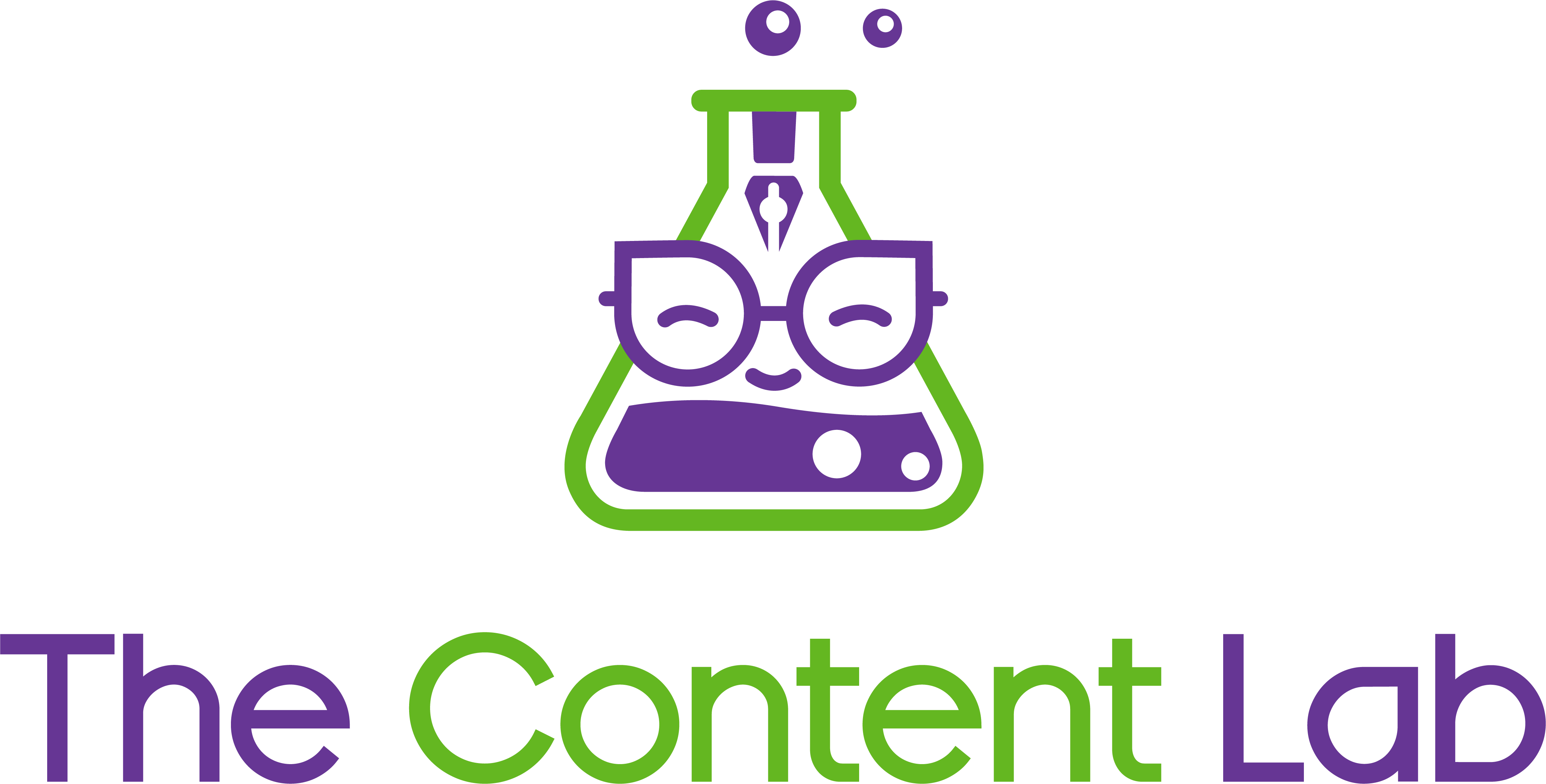We’re not going to start this blog by bashing all conceivable uses of AI. We know small business owners need to turn a profit, and AI copywriting tools seem to solve all their content marketing needs like magic. Deadlines are tight and budgets are tiny, so finding a fast, free way to write copy seems like a no-brainer solution.
AI tools work in seconds, giving you web content that sounds just as good as every other blog you’re reading these days without the cost of a human content writer, right? We understand the allure.
But we’ve kept a close eye on AI copywriting (and yes, we can spot it at 60 paces). And we’ve noticed a profound and game-changing truth that just might help you decide to stop relying on AI for content. Here we go:
AI will never tell you “no”
AI copywriting tools are purported to be bulletproof. They can write whatever you want fast, while maintaining an unwavering tone of voice and hitting targets like keyword density, SEO-informed structure, and even suggesting points and tips a human copywriter might have missed.
But AI won’t ever say, “Hey, I actually don’t think this blog is a good fit for our website.” It can’t think critically about whether a topic’s worth writing about, or whether adding yet another keyword-stuffed, blandly-written blog will improve your brand’s reputation.
If you’ve worked hard to define your audience and hone your messaging, AI can trash all of that effort in the seconds it takes to generate an article. AI never tells you that your content idea is bad or misguided. Or that it might take your content off track, lose sight of your business goals, or read as a “miss” for your audience.
Despite their chipper tone, AI copywriting tools aren’t your friend or helpful colleague. They’re content cannibals, simply chewing and regurgitating the content your competitors have already written.
Even if the worst they do is make you sound bland and forgettable – is that okay with you?
Do you want to sound bland and forgettable to your audience?

Strategy sets a human writer apart
The creators of AI tools have forgotten that strategy is an intrinsic part of the writing process. Even the best AI copywriting tools can’t replace humans for coming up with a novel, detailed, and specific strategy for your content – one that folds into an informed overarching digital marketing campaign.
Humans see the whole picture
While AI copywriting tools work by mimicking the words and paragraph structures they find on the internet, a human considers:
- Their target audience
- Customers’ problems
- Users’ online habits
- Keyword research
- The overall business plan
Blog posts aren’t just a box to tick. The copywriting process isn’t an assembly line. Your content is part of a bigger digital marketing strategy, and it takes a human to understand that and write accordingly. Copywriting software will spit out the content you tell it to, but a human will create content that reflects your company’s journey and helps chart a course to the next horizon.

AI copywriting can’t stand out
AI-generated content is, by definition, bland because it’s created using existing content. It offers no fresh perspective or new insight, and it won’t ever surprise you.
Of course, you can prompt AI copywriting tools to spice up the brand voice a bit, and it’ll respond with a saucier tone and a bit of harmless slang. “Personality!” you rejoice. Until you read your competitors content and realise your landing pages, blogs, and social media posts sound exactly like theirs.
Human copywriters speak to human readers
A good content writer is part psychologist, part wordsmith, and human-generated content speaks to human needs, fears, and feelings. It informs the reader who wants to know that you’re an expert in your field. It calms the reader who’s worried that they won’t find help for their problems. Human writing makes your human readers think, “Yeah, this brand gets it.”
If it’s exceptionally well-crafted, human-written website copy and blog content delights and surprises readers with a playful word choice or a mic-drop phrase. They don’t forget your content the second they read it, but continue to mull it over and use it as go-to data for making a purchasing decision.
How to use AI without losing your good reputation
Like any tool, AI writing software has its uses. AI copy and blog articles won’t win customers, but the software can be handy for making repetitive tasks less burdensome and getting a handle on niche topics that are new to you.
Important to note: we do advise using AI tools for a few tasks, but every one of these suggestions comes with caveats for using the tools judiciously, without compromising your content ethics and standards.

Generating blog topic ideas
Writing regular blog posts can feel like a chore, especially when you’ve been doing it for several years. Your “ideas well” might be running dry, and it gets hard to come up with new ways to say the same old thing.
AI copywriters can give you topic ideas that you might not have found on your own. But be careful – AI is harvesting other websites’ content for these ideas. So, you might discover that what it gives you has been directly lifted off a competitor’s website, or that it doesn’t really follow your content strategy.
Start by doing keyword research to choose keywords that are gaining traction for your website. Prompt AI to generate blog topics focused on those keywords so you know the topics it suggests will be relevant to your audience and in line with your strategy.
Coming up with blog titles
If you have blog posts that are performing very well, AI can suggest related blog titles. That way, you can cash in on a topic that’s generating traffic without writing a new blog that ultimately competes against your current blog for a top-10 search result spot.
Or, if you have a topic idea but you just don’t know how to frame it into a title, AI can help there, too. It can take your idea and spin it into a succinctly-worded title.
That said, AI-generated blog titles tend to follow the same structure:
“Big Idea: Smaller, Niche Topic to Support the Big Idea”
Even when we’ve asked AI tools (repeatedly) to stop using this construction for headlines, AI just can’t help itself. So, always rewrite the headlines AI suggests to be less generic. And skip the colons – including them is a dead giveaway that your blog’s been written by AI.
Getting a baseline understanding of a new topic
You can’t know everything. You are, after all, only human. 😉 AI tools can give you a crash-course in an unfamiliar topic.
BUT (you knew it was coming!), AI can’t always be trusted. We’ve seen it misquote Steinbeck and incorrectly label restaurants as “gluten free”, so who knows what else it’s getting wrong! Though it’s tempting to think of AI as all-knowing, that mindset is dangerous. Don’t outsource your thinking cap.
If you don’t understand a topic, take the time to learn about it. Ask AI for the broad strokes of the topic. Then read blog posts from trusted sources and use them as references in your content. Not only will it make your writing that much better, but search engines will appreciate the high-quality links in your copy and give you a better trust score, too.

For human writing to work, brands have to be bold
This entire blog is based on the assumption that you want your company to stand out amongst your competitors. That you’re not OK with “generic” and you’re better than bland.
But to achieve a truly unique, engaging, and original brand voice, you have to be ready to embrace those attributes when they’re offered.
We’ve written catchy copy for clients that were too scared to publish it. They’ve stripped out the personality and replaced it with business-speak, and that’s their prerogative. But we worry that their content won’t encourage conversions, and we’re convinced it’ll tell people they’re a ho-hum brand with nothing special to offer.
The competition to be heard online is relentless, and your only hope for standing out is to be unforgettable. Every email subject line is a chance to show that you’re different. Every blog post proves you’re more knowledgeable and more interesting than the competition.
Examples of AI-generated content vs human-written content
Clients often ask us to rewrite AI-generated content – and we’re happy to do it. It’s satisfying to produce a keyword-rich yet totally engrossing blog post or website copy where once, an impersonal husk of content once stood.
See for yourself the warmth and humour a human touch brings to copy:
AI made fairytale engagements sound bland! We gave them the romance they deserve
Take a look at this AI-written blog copy about getting married in Ireland:
“Are you dreaming of a romantic, intimate elopement in the heart of Ireland? We’re excited to offer exclusive indoor location packages that provide the perfect setting for your special day. Whether you envision a cosy, historic castle, a charming traditional Irish venue, or a beautifully decorated garden room, our carefully curated locations ensure a memorable and magical experience, regardless of the weather.”
There’s nothing technically wrong with the first version, but it’s entirely forgettable. The human-written version, on the other hand…
“Ireland’s natural beauty is world-famous, but not everyone wants an outdoor ceremony. If your heart’s set on a strapless dress, or you’re afraid the Cliffs of Moher gusts might sweep grandma off her feet, check out these indoor wedding locations. Just as romantic, with a lot less weather drama. 
Personality-driven, image-rich, and much more engaging!
AI’s headline for a small business consultant had us napping before we reached the end
If you rely on AI to write your website copy, good luck standing out from the competition. How much personality can you find in a headline that’s just a mishmash of buzzwords?
“Empowering Your Business to Thrive: Expert Consulting for Small Business Success”
Instead, we wrote a banner headline that speaks to the outcome a business owner wants to enjoy after booking the consultant’s services:
“Lead your company with confidence
Work with a business growth strategist who empowers mission-driven leaders to write their own story”

A blog about dinner plates? Unforgettable in the hands of a human writer
If AI had written this blog for a commercial dinnerware manufacturer, it would have fallen flat:
“Customised dinner plates for restaurants need to be dishwasher safe to ensure efficiency, durability, and cost-effectiveness in the daily operations of a busy establishment. Restaurants rely on high-volume dishwashing to keep up with the demands of a bustling dining environment, and plates that aren’t dishwasher safe can lead to damage, discolouration, or the need for handwashing, which is time-consuming and labor-intensive. Dishwasher-safe plates also reduce the frequency of replacements, saving money in the long run. Additionally, having plates that maintain their appearance and quality after repeated washings helps preserve the restaurant’s brand image, ensuring that the custom design remains vibrant and intact, even after multiple cycles in the commercial dishwasher.”
But we wrote a take-no-prisons version that will really resonate with chefs and restaurant managers:
“So many custom plates look the part – until you wash them. If they’re plastic, they’ll warp and crack, creating a horror show of your gorgeous custom design. If they’re low-quality, your logo or design will start to fade with every wash.
Only buy plates that can withstand the considerable pressures of your commercial kitchen – the freezer, the commercial dishwasher, the warming lamp. Not all custom plates are created equal, and cheap ones will end up in the trash, a customised waste of money.”

Human writing makes snore-inducing web development copy more interesting
In this example, we’ve used AI to introduce a blog on website load speeds. It offered a snore-inducing intro that actually says very little:
“Website load speed is a critical factor in delivering a positive user experience and ensuring the success of your online presence. In today’s fast-paced digital world, users expect websites to load quickly, with studies showing that even a few seconds of delay can lead to higher bounce rates and lower conversion rates. Fast load times not only improve user satisfaction but also play a key role in search engine rankings, as search engines like Google prioritise websites that offer a seamless experience. Optimising your website’s speed is not just about keeping users happy – it’s about maintaining your competitive edge in a crowded online marketplace.”
Here’s the human version. We introduced some facts, varied the sentence structure, added keywords, and incorporated a more interesting tone of voice.
“Site speed is essential for keeping website visitors happy and interested while they explore your site. Your visitors expect your page load time to be lightning-fast. If the entire page doesn’t load correctly in under 3 seconds, your visitors will bounce.
Ensuring your website is fast can be the difference between getting a new client and losing them. But why is that?
There are fascinating psychological reasons why visitors demand quick page speed. We’ll take a look at them here, and share advice on what might be causing your page load speed to disappoint your potential clients.”
Your customers, your company, your reputation deserve better
No one’s giving out ethics prizes for sticking to your guns on AI-written content. But your readers will know.
They won’t say “Uh oh! I see X company’s cutting content corners with AI!” and send shock-face emojis to their friends. They won’t think that deeply about it. In fact, they’ll probably stop thinking about you at all.
AI writing will make your content uninteresting. It’ll flit out of their consciousness as soon as they read it, and your brand will begin to drift into the beige void, too.
Your company deserves better! Work with human writers to think carefully about your target audience, pinpoint exactly why they’re seeking your services, and write copy that solves those problems. Beyond those basics, use your content to add fun to their day, or give them a dose of wisdom where they weren’t expecting it.
It’s easy to forget that your customers aren’t “visitors” or “traffic” – they’re humans, laying across their couch and scrolling your content. Or sitting in front of a laptop, dinner burning in the background, while they try to book a service that’ll make their life a bit less hectic.
When they feel known and understood by a brand that they know and understand in return, they’re more likely to buy, book, and keep returning for more. Good content deepens that relationship – and human content writers create good content.
Let’s make unforgettable content together – talk to Abby to get started.
Other Posts
 Content Marketing
Content Marketing Think Your Content’s Fine? Try This Content Audit Process and Find Out
 Content Marketing
Content Marketing How One Branding Workshop Can Do What Six Strategy Decks Can’t
 Content Marketing
Content Marketing 

